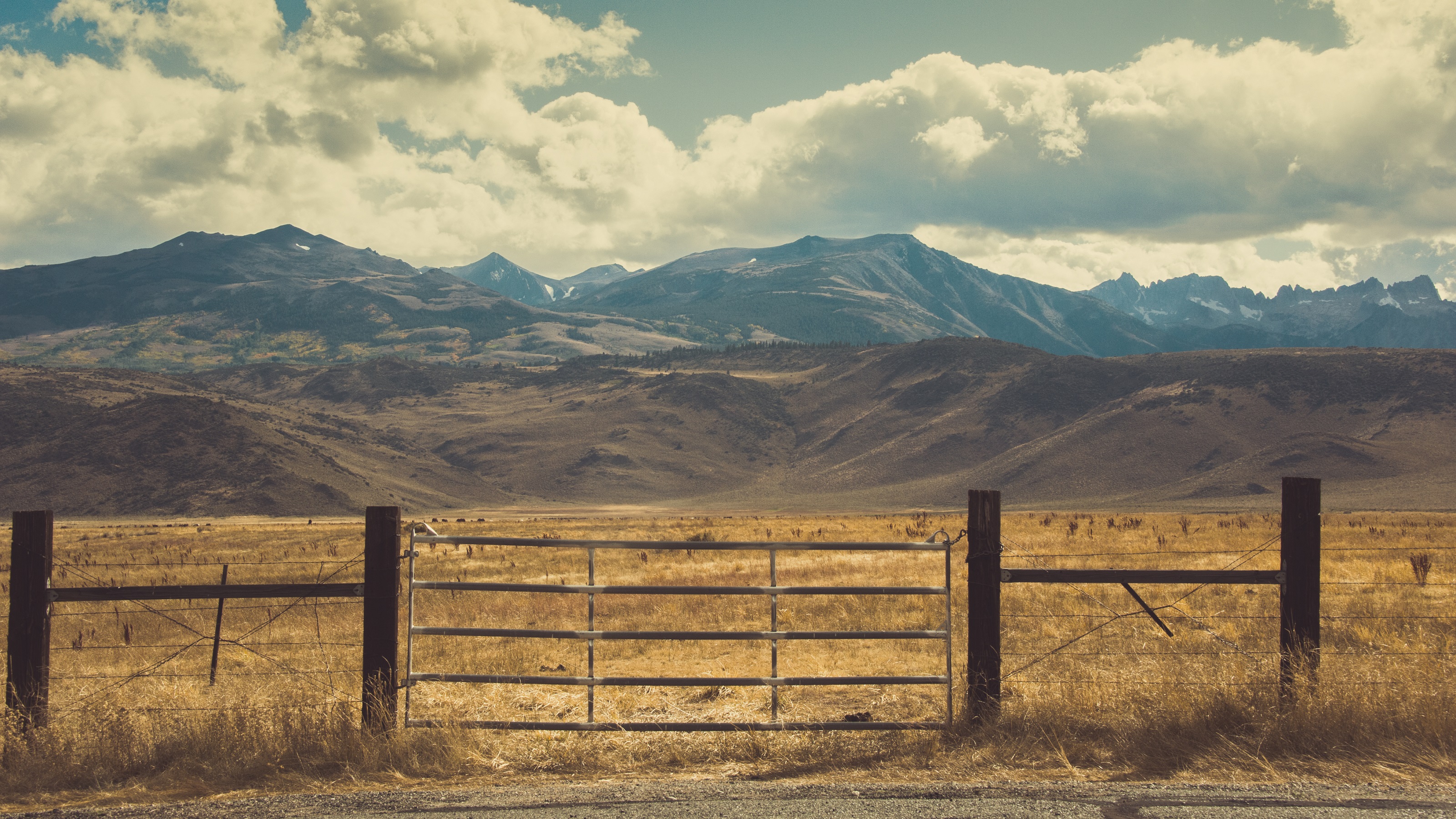Does a Farm Need a Different Homeowners Insurance Policy?
Homeowners insurance is all about providing the right tool for the right exposure, and life on the farm comes with different risks than life in the city.

Profit and prosper with the best of Kiplinger's advice on investing, taxes, retirement, personal finance and much more. Delivered daily. Enter your email in the box and click Sign Me Up.
You are now subscribed
Your newsletter sign-up was successful
Want to add more newsletters?
Homeowners insurance, home insurance, home policy — however you may refer to the insurance product you have purchased to protect you and the house you live in may not pay a penny for anything if your home is not, well, just your plain old vanilla home.
Have a few horses? I recently had the pleasure of spending a week on a farm in Montana. Incredible city and state, and seeing as how I’m a city boy, being able to be on a working farm and have my day start with a rooster was truly surreal. And yes, I stayed in a house. A good old-fashioned single-family home. Like any other home, right? The owner will have a homeowners insurance policy to protect them like any other homeowner, right? Well, probably not. While the house itself is like many others, the livestock on the premises — though, to my chagrin, the farm dogs weren’t permitted in the house — make the overall risk of damage entirely different than that of a home in, say, the middle of the city.
Read on for more, and/or check out my video on this topic:
From just $107.88 $24.99 for Kiplinger Personal Finance
Become a smarter, better informed investor. Subscribe from just $107.88 $24.99, plus get up to 4 Special Issues

Sign up for Kiplinger’s Free Newsletters
Profit and prosper with the best of expert advice on investing, taxes, retirement, personal finance and more - straight to your e-mail.
Profit and prosper with the best of expert advice - straight to your e-mail.
How in the heck would having some horses, a cow, a donkey, some goats — you get the idea — have any impact on the likelihood of this house catching on fire, being broken into or something else we might associate with what homeowners insurance policies cover? While you’d be correct that the risk does not come from an increased probability that a donkey could leave a marijuana joint smoldering that catches the barn on fire, there are other physical risks associated with farm life.
Hay can catch fire, manure is a major fire accelerant, and livestock can be unpredictable and cause physical damage to the property as well — even more than your teen’s party when you’re out of town.
I’m referring only to physical damage to the property, and as we also know, most homeowners insurance policies cover liability exposure as well. As a refresher, “liability” means being legally responsible for something, particularly in the case of causing harm or damage to another person or property. As friendly as the farm dogs are, they are there to keep the rest of the animals in check and protect the property. They sense stranger danger and will do what they must to protect the farm, the animals on it and us two-legged animals, too. Not too worried about the ducks leaving the pond in search of trouble, but those geese will snap at a finger, or more, if given the chance.
If you’re a horse rider, you know how dangerous straddling a 1,000- to 2,000-pound animal can be. Even the best and most experienced riders can get tossed or kicked when they aren’t paying attention. The goats, well, they’re goats. Not terribly dangerous, I’d surmise, but more risk is associated with them than the average homeowner relaxing on their chaise lounge.
Different risk exposures
What this all comes down to is a home on a farm has drastically different exposures than a home in the city, whether it is potential for loss due to physical damage or liability exposure. No judgment here whatsoever — just pointing out what we don’t always think about. Keep in mind, homeowners insurance policies are fairly structured and designed with many assumptions in mind, and nothing listed above is in those assumptions. So what do you do?
If you are a frequent reader of this column, then you probably know what I’m going to say next. If you’re new here, welcome, and permit me to indoctrinate you: When in doubt, ask your agent or broker or insurance company if you fit the bill for the insurance policy you have. Some insurers may be just dandy with you having a horse. Another may say that’s beyond the scope of their policies. Some may say if your home is on more than a certain number of acres, it no longer qualifies for a homeowners insurance policy in the traditional sense. Having any non-domesticated animal can be enough to trigger exclusions galore. Don’t assume, ask.
Enjoy life on the insured farm
But do not fret. The good news is that there are insurers that will be more than thrilled to cover your home on a farm. You don’t have to think you are uninsurable, or feel that you have a scarlet letter on your chest because you choose to live where you can see the stars, breathe fresh air and hear nothing in the morning other than the rooster crowing. You can have Church the horse, Rowdy the cow, Kip the dog and your cake and eat them, too. Hmm, that may not be the best way to phrase it — but you get the idea.
Remember with homeowners insurance policies: It is the right tool for the right job, or more accurately, the right policy for the right exposure. A standard homeowners insurance policy isn’t up to the task of protecting you on the farm, but a farm policy is! Ask your agent or broker what the appropriate type of policy is for you, and all should be well. Whether yours is a hobby farm with just a handful of majestic grass guzzlers or bearded lawnmowers, or the whole ecosystem of animals, the right policy is out there just waiting for you to obtain it.
Related Content
- Can You List From Memory Everything That's in Your House?
- Are You Tempted to Drop Your Homeowners Insurance?
- Wait, My Homeowners Insurance Limits What?
- Eight Reasons Why Your Home Insurance Costs Are Surging
- How to Save on Homeowners Insurance: Boost Your Deductible
Profit and prosper with the best of Kiplinger's advice on investing, taxes, retirement, personal finance and much more. Delivered daily. Enter your email in the box and click Sign Me Up.

Karl Susman is a veteran insurance agency principal, nationally engaged insurance expert witness and broadcast host who translates insurance from jargon to judgment. For more than three decades, he's helped consumers, courts and policymakers navigate coverage, claims and compliance. As Principal of Susman Insurance Agency, Karl works directly with households and businesses to compare options and make clear, defensible coverage decisions.
-
 Is There Such a Thing As a Safe Stock? 17 Safe-Enough Ideas
Is There Such a Thing As a Safe Stock? 17 Safe-Enough IdeasNo stock is completely safe, but we can make educated guesses about which ones are likely to provide smooth sailing.
-
 We're 64 with $4.3 million and can't agree on when to retire.
We're 64 with $4.3 million and can't agree on when to retire.I want to retire now and pay for health insurance until we get Medicare. My wife says we should work 10 more months. Who's right?
-
 Missed an RMD? How to Avoid That (and the Penalty) Next Time
Missed an RMD? How to Avoid That (and the Penalty) Next TimeIf you miss your RMDs, you could face a hefty fine. Here are four ways to stay on top of your payments — and on the right side of the IRS.
-
 Is There Such a Thing As a Safe Stock? 17 Safe-Enough Ideas
Is There Such a Thing As a Safe Stock? 17 Safe-Enough IdeasNo stock is completely safe, but we can make educated guesses about which ones are likely to provide smooth sailing.
-
 Missed Your RMD? 4 Ways to Avoid Doing That Again (and Skip the IRS Penalties), From a Financial Planner
Missed Your RMD? 4 Ways to Avoid Doing That Again (and Skip the IRS Penalties), From a Financial PlannerIf you miss your RMDs, you could face a hefty fine. Here are four ways to stay on top of your payments — and on the right side of the IRS.
-
 What Really Happens in the First 30 Days After Someone Dies (and Where Families Get Stuck)
What Really Happens in the First 30 Days After Someone Dies (and Where Families Get Stuck)The administrative requirements following a death move quickly. This is how to ensure your loved ones won't be plunged into chaos during a time of distress.
-
 AI-Powered Investing in 2026: How Algorithms Will Shape Your Portfolio
AI-Powered Investing in 2026: How Algorithms Will Shape Your PortfolioAI is becoming a standard investing tool, as it helps cut through the noise, personalize portfolios and manage risk. That said, human oversight remains essential. Here's how it all works.
-
 If You'd Put $1,000 Into Caterpillar Stock 20 Years Ago, Here's What You'd Have Today
If You'd Put $1,000 Into Caterpillar Stock 20 Years Ago, Here's What You'd Have TodayCaterpillar stock has been a remarkably resilient market beater for a very long time.
-
 Good Stock Picking Gives This Primecap Odyssey Fund a Lift
Good Stock Picking Gives This Primecap Odyssey Fund a LiftOutsize exposure to an outperforming tech stock and a pair of drugmakers have boosted recent returns for the Primecap Odyssey Growth Fund.
-
 5 Laundry Habits That Are Costing You Money
5 Laundry Habits That Are Costing You MoneyYou might be flushing money down the drain if you have any of these laundry habits.
-
 More Tools to Build a Bond Ladder
More Tools to Build a Bond LadderVanguard aims to launch a line of target-maturity corporate bond ETFs.
